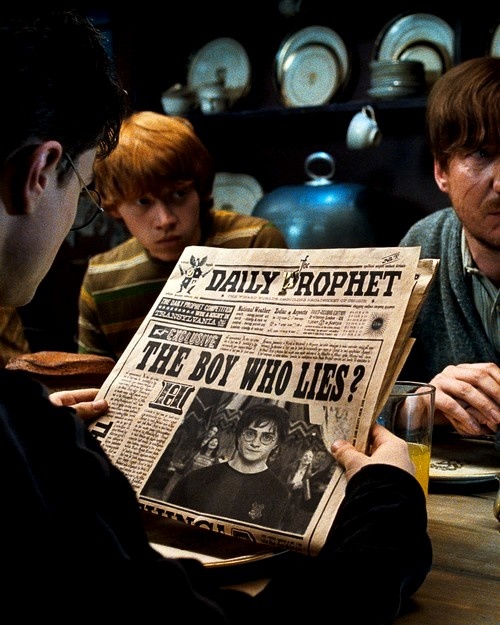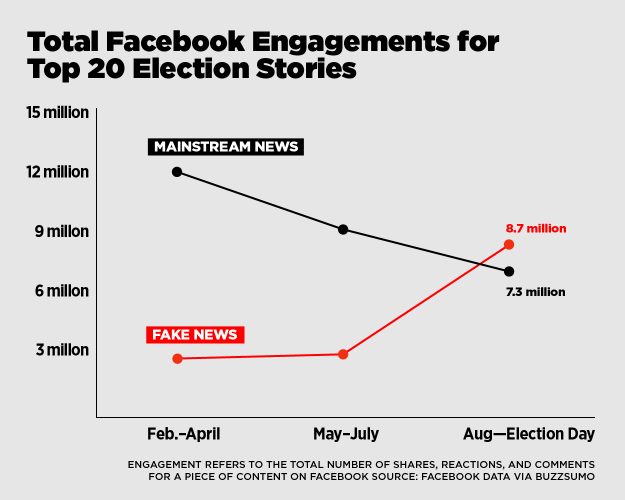Facebook Users Shared More Fake News Than Real News In the Run-Up to the U.S. Election


People just love sharing fake news stories. Although Facebook CEO Mark Zuckerberg claims that fake news stories getting shared on Facebook represented only a small percentage of posts, and that he was therefore confident those stories didn’t influence the election, many other people have expressed doubts about that.
Buzzfeed tested Zuckerberg’s claim by putting together a study, and according to their findings, which span over the three months just before the U.S. election, people preferred to share the fake news stories. Here are the stats:
During these critical months of the campaign, 20 top-performing false election stories from hoax sites and hyperpartisan blogs generated 8,711,000 shares, reactions, and comments on Facebook.
Within the same time period, the 20 best-performing election stories from 19 major news websites generated a total of 7,367,000 shares, reactions, and comments on Facebook.
Buzfeed put their data into a Google doc if you’d like to peruse it yourself. So far, the results look pretty damning, particularly when shown as a graph:
 (image via Buzzfeed)
(image via Buzzfeed)
As the graph shows, fake news became increasingly popular the closer to the election we got. At first, real news stories easily outnumbered the fake ones, but by the time we got to voting day, the fake news had pulled ahead.
Did that end up affecting the election? Well, Mark Zuckerberg says that’s “crazy.” Even so, Zucks would do well to remember that Facebook has previously done studies on their user-base about this sort of thing, and has found that the content in Facebook news feeds does influence voter turnout and civic engagement. (I doubt Zuckerberg has actually forgotten that, but I’m sure he’d love it if we would.)
Ensuring that news feeds prioritize content that isn’t from fake news sites could have ended up helping voters and encouraging them to remain involved–as opposed to just seeing both candidates as “equally bad” and shutting down from the whole topic. One of the biggest problems with this past election is that 42% of eligible voters didn’t show up at all, either because of voter suppression efforts, or because they didn’t care to try to vote. By the way, those voter suppression efforts were the work of the Republican Party.
The low turn-out definitely contributed to the election’s final result, but the preponderance of fake news probably hurt as well, particularly with American distrust of the media sinking to a new low this year. It would help if the places where people get their news, such as Facebook and Google, would do more to fix their algorithms and ensure that they’re prioritizing credible outlets and serving those posts first.
(via Daily Dot, image via Pinterest)
Want more stories like this? Become a subscriber and support the site!
—The Mary Sue has a strict comment policy that forbids, but is not limited to, personal insults toward anyone, hate speech, and trolling.—
Follow The Mary Sue on Twitter, Facebook, Tumblr, Pinterest, & Google+.
Have a tip we should know? [email protected]